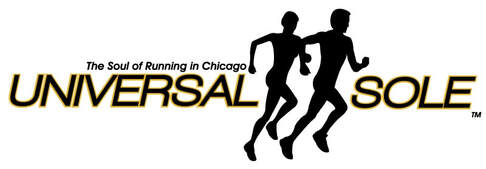|
How do the carbohydrate supplements in the form of gels, blocks and beans differ from sports drinks?
Sports drinks hydrate and provide carbohydrate energy and electrolytes. Gels, like GU, Clif SHOT, Power Gel, Carboom, etc provide concentrated carbs and possibly some extra ingredients (amino acids, electrolytes, vitamins, caffeine). These carbohydrate supplements are convenient fuel for the longer training sessions or events (lasting more than an hour). Cliff Shot Bloks and Jelly Belly Sport Beans (Fruit Punch 24-Pack) are similar to a gel, but in a chewy, or semi-solid form. There are many flavors and nutrient combinations to choose from, but they all serve the same general purpose: they are carbohydrate supplements. On average the supplements provide 25 grams of carbohydrate per serving. Check the products for electrolytes, too, if that is a need in your sports nutrition plan. How do I decide which type of carb supplement to use? It depends on your preference and tolerance. Some athletes don't like the texture of gels, while others don't want to bother chewing a sport bean or block. Gels may be easier to carry (they fit into a key pocket), while blocks and beans are a bit more bulky. Blocks and sports beans add some variety to carb supplementing, giving you something to do as you run or bike (like treating yourself to a bean at a set distance). You can't reseal a gel once it's opened, but that's okay since the content of the gel pack (25 grams carb) is designed to be taken at once. Sports beans and blocks also can't be resealed. One bag of sports beans provides 25 grams of carb, so be sure to eat the whole bag. (They are noisy, but, hey, on a long run maybe you need a diversion). A package of Clif Shot Bloks provides 2 servings (3 pieces are 24 grams carbohydrate). As for tolerance, that is very individual. Don't be discouraged if you don't like a gel the first try. Experiment with different flavors and brands to see which one sits well in your stomach. Try the gels with or without caffeine, or other added ingredients. Alternate gels, sports beans and blocks in the really long training sessions for variety. Find out what will be offered on the race course and either train with that gel/flavor, or be sure to carry it with you to be on the safe side. All the carb supplements are sweet (that's the carbs ready to fuel your muscles), but so are sports drinks. If you tire of drinking the sports drinks, try alternating the sports drinks with the sports beans, blocks or gels that are taken with water. How much of a carbohydrate supplement do I need? The general recommendations for carbohydrate during exercise are 30-60 grams per hour. To get the upper range of carb grams you could drink about 34 ounces of a sports drink (14 carb grams per 8 ounces) per hour or one gel pack (25 carb grams) with water and 20 ounces of sports drink (35 carb grams). The amount of total fluids you need depends on your sweat rate. It is especially important to supplement with carbohydrates during training or an event if you have not eaten before you begin, if the training is going to last longer than an hour, or if you're in extreme conditions (very hot, cold or high altitude). If you choose to pack in the carbs with a gel, block, or bean, you still have to hydrate with fluid. Drink water with these concentrated carbohydrate supplements, but use sports drinks otherwise. You should plan ahead for the amount of fluid you need to stay hydrated and the amount of carbs you need to stay fueled. Do the math and make a plan! Do I have to use a carbohydrate supplement? No, but they are a convenient way to get the carbs you need. In addition, they are designed with the carbohydrate sources for the best absorption. Third, they do not include the fats and fibers that solid foods may provide. Fat and fiber sit in the stomach longer and may upset your stomach. If, however, you choose not to use carb supplements (you don't have them or you don't tolerate them), be sure to take in some type of carbohydrate. Sports drinks work. Candy, cut up granola bars, and fruit provide carbs, but it is harder to keep track of the amount of carbs you're getting, and you either have to lug them with you or plant them at various spots on your route. Bottom line? You need carbs for the long sessions. Use what works for you. |
AuthorUNIVERSAL SOLE - a grass roots running events company (which had roots of close to 20 years as a running specialty retailer) offering information on running shoes, gear, accessories & overall fitness trends. Archives
June 2018
Categories |


 RSS Feed
RSS Feed